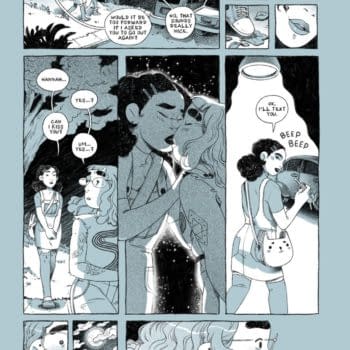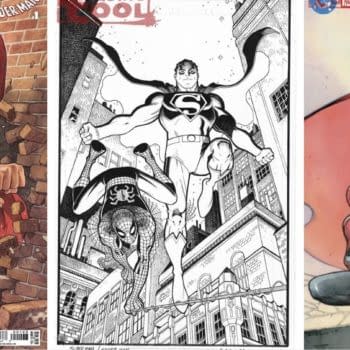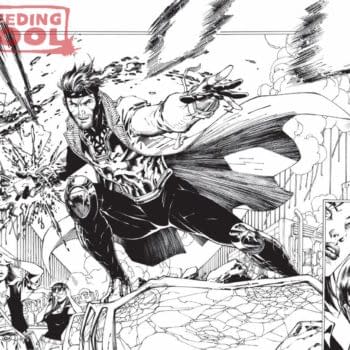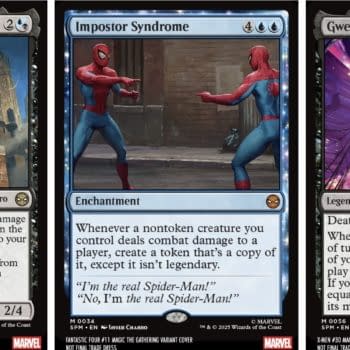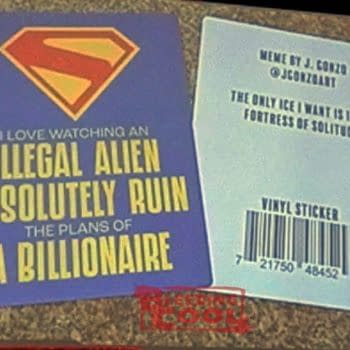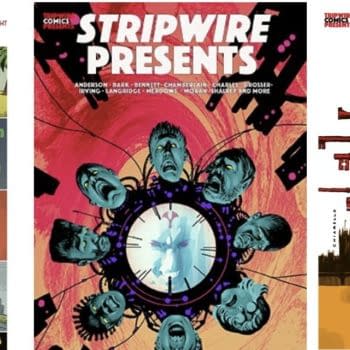Posted in: Comics | Tagged: Comics, dynamite, entertainment, matt wagner, michael uslan, the shadow
Michael Uslan Plays 'What If?' In The Shadow #100
Doug Murray, co-writer of Jungle Girl: Season Three #3, talks with Shadow co-writer Michael Uslan about that character's celebrated #100, both on sale June 24th. Covers by Matt Wagner and Robert Hack.
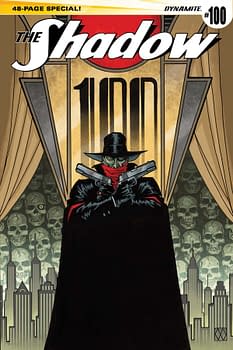
MICHAEL USLAN: This was conceived by Dynamite and assigned to us as a series of short stories. I was told that I had eight pages: no more, no less. My original idea was to — on second thought, I'm not going to say! I think it's a really cool idea that I'd like to actually do at a later date. My second idea was to consider what would have happened if the Shadow had been nearby when a certain family was held up at gunpoint on the way home from the movie one night. That, in turn, let me to consider what the Shadow's reaction might have been to the unauthorized radio show about his exploits… And to the actor playing him. How coincidental and ironic that another of the short stories in this Shadow #100 special would deal with his reaction to the unauthorized Shadow comic books!
DM: I've been a fan of the Shadow for some time—mostly in the form of novels and, way back, radio shows. I don't remember the Shadow working with the police in any direct way (although he does turn crooks over to them from time to time). Is this a new concept and, if so, why do it as it makes him more like Batman.
MU: The Shadow/Lamont Cranston's relationship with Police Commissioner Weston predates the Batman/Bruce Wayne relationship with Police Commissioner Gordon.
DM: I also notice that the Shadow only draws and uses his guns once in the stories here. Those over-sized .45's were always a big part of the Shadow's presence. Was it your idea to use them less often or is it a reaction to the current situation in the U.S.
MU: In my story [contribution to #100], the Shadow does use his guns and makes Swiss cheese out of the hold-up man threatening the family. My intention was to stress the Shadow's vision of himself as judge, jury and executioner.
I can't speak for any of the other writers; however, I would imagine that recent events in our crazy world have impacted them one way or another.
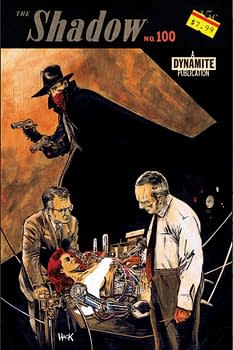
MU: People who knew Kent Allard from his past and now prove to be loyal soldiers in his war against crime, post-World War 1, would still relate to him as "Kent." In my graphic novel, The Shadow/Green Hornet: Dark Nights, the Shadow's agent, Cliff Marsland, knew Kent and served with him in World War I and has a challenging time adapting to his new "Lamont Cranston" identity.
DM: Not a question—just congratulations on getting Bruce Wayne (not someone who will probably not grow up to be Batman) and Orson Welles in a story together—well done!
MU: Historical fiction is my favorite genre to write. I have incorporated it into my graphic novels, Batman: Detective #27; Shadow/Green Hornet: Dark Nights, and Justice, Inc.
For more on The Shadow #100, click here.









